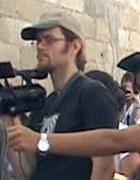|
|
The Oaxaca stand-off has been a hidden story, largely ignored by the U.S. press. What has been silenced with the death of an independent reporter like Will, unfunded by any large organization, was one of the few voices that has tried to tell the story to the world. Teachers began the strike in May by requesting a salary raise and peacefully occupying the city center. In the following weeks Gov. Ulises Ruiz ordered the teachers forcibly removed, which drew other demonstrators to join the occupation and eventually paralyzed the city. Paramilitary and off-duty officers have shot at the demonstrators -- at least 13 deaths, including Will's have been counted. Residents called for the resignation of Ruiz, an iron-fisted governor blamed for the deaths, and for a corrupt administration. The strikers insisted on non-violence. Now President Vicente Fox, with just one more month in office, has sent in federal troops to re-take the city.

The conflict in Oaxaca is part of a larger movement of demands for wider democracy in Mexico, often spearheaded by Native groups, the most well-known of which is the Zapatista movement in the Lacandon jungles and other areas of Chiapas, south of Oaxaca. Of some 500 Oaxaca municipalities, more than 400 are overwhelmingly Indian; among the 70,000 teachers affected by the strike, many of the activists are bilingual indigenous teachers. While teachers voted last week to return to work, others have vowed to continue to paralyze the city until demands are met. Now that Fox has sent in federal riot police with automatic weapons and military helicopters in the wake of Will's and two other deaths, it's not clear which direction the Oaxaca story will take, but it's clear it will not disappear.
The Popular Assembly of the Oaxacan Peoples, known by its Spanish acronym APPO, a collection of activist groups, has said it will maintain the occupation. Monitoring its radio station Asamblea Popular de Oaxaca (www.asambleapopulardeoaxaca.com) as federal troops came to the city, a listener could hear a town at war, and the sounds of resistance. Light small fires to make smoke and obscure the vision of helicopters, announcers advized, give blood, and bring food to strategic points. There were warnings about neighborhoods being searched ("Police in ski masks dressed in grey are going house to house in Colonia Aleman"), and reports of federal troops' movements at various sectors. There were also constant calls to remain peaceful, to avoid anyone who suggested violent reaction, to avoid provocations that might call down reaction from troops and police. Sugar and sand might be thrown in front of vehicles, an announcer suggested, to slow their progress.
"It is clear that this is more than a strike, more than expulsion of a governor, more than a blockade, more than a coalition of fragments -- it is a genuine peoples revolt," wrote Brad Will in the days before he died. "After decades of...rule by bribe, fraud and the bullet the people are tired -- you cannot mistake the whisper of the Lacandon jungle in the streets -- in every street corner deciding together to hold -- you see it in their faces -- indigenous, women, children -- so brave -- watchful at night -- proud and resolute."
Small demonstrations are taking place in cities such as San Francisco, New York and Los Angeles, deploring the Oaxaca deaths and Fox's decision to send federal police and soldiers to Oaxaca. The Spanish language daily La Opinion said 70 persons from the Oaxacan community demonstrated in front of the Mexican Consulate in Los Angeles, and quoted Odilia Romero, a representative of the Binational Indigenous Organizations Front, made up largely of Oaxacans in Southern California and the agricultural Central Valley. "There is no need to repress the people of Oaxaca, who are a peaceful people," Romero told La Opinion. Strikers have blamed Gov. Ruiz for acts of violence before and since the strike began. Ruiz is a member of the PRI, the party which has governed Oaxaca for 70 years. "If he stays the repression is going to be stronger against those who are against him," Romero said.
The Fox administration began with hope, because he was the first to break the 70-year stranglehold of the powerful PRI party on Mexico's presidency, and because President Bush gave strong signals then about immigration reform, which would benefit Mexicans. Fox is leaving with no immigration reform in the north and a fence going up on the U.S. border; and in the south, a former tourist mecca occupied by federal troops holding off a disgruntled population. It has taken the death of an American to shine a light on the struggle in Oaxaca, where demands for "direct democracy," more autonomous rule that answers local needs without corruption, are not likely to go away. "What can you say about this movement -- this revolutionary moment," Brad Will asked in his last dispatch. "You know it is building, growing, shaping."
Comments? Send a letter to the editor.Albion Monitor October
31, 2006 (http://www.albionmonitor.com)All Rights Reserved. Contact rights@monitor.net for permission to use in any format. |
|









